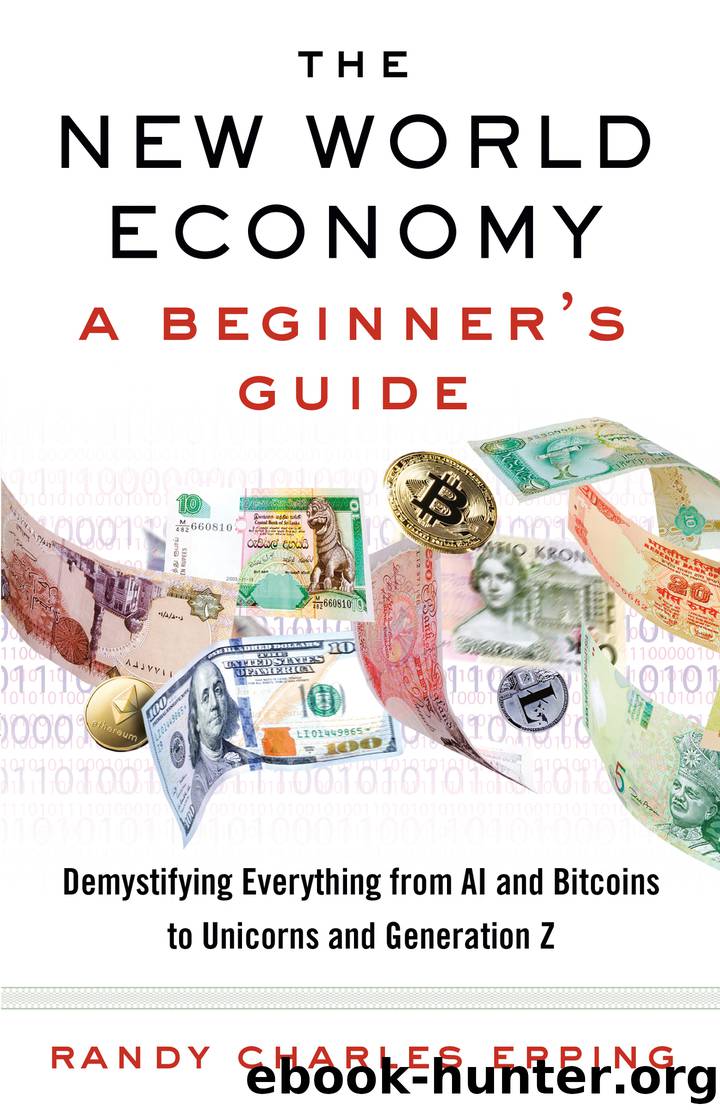The New World Economy by Randy Charles Epping

Author:Randy Charles Epping
Language: eng
Format: epub
Publisher: Knopf Doubleday Publishing Group
Published: 2020-01-20T16:00:00+00:00
27
Sharing the Wealth: How Do Charities, Private Enterprise, and NGOs Promote Economic Development?
Crowdfunding, before the digital age, tended to be done the old-fashioned way—usually by asking people in a church, mosque, or synagogue for a donation. The shared interests of the congregation ensured that the money would usually be spent for the common good of the community. In today’s global economy, charitable giving, like almost everything else, has been transformed by new technology. Ranging from microloans to global initiatives such as the Bill and Melinda Gates Foundation, charitable giving in the twenty-first century has become a key element in the effort to reduce inequality and improve the lives of people in the developing world.
When the United Nations was established in 1945, the founders coined the term nongovernmental organization (NGO) to designate the activities of nonprofit organizations working in the public sphere without direct control by national governments or intergovernmental entities. The number of NGOs in the world has been estimated to be more than ten million, and their activities range from health-care and human rights advocacy to environmental activism and education.
In many cases, large NGOs like Save the Children, Oxfam, and Doctors Without Borders play a major role in reducing poverty and increasing the quality of life for millions of people in the world’s poorest countries. Many of these organizations have evolved from simply providing food or medical care to taking a more holistic approach to creating an environment where famine and epidemics can be eradicated.
The United Nations has called for charities, NGOs, and governmental organizations to work together to accomplish seventeen specific development goals by 2030. The Sustainable Development Goals project was set up in 2015 to attempt to cut in half the number of people living in extreme poverty. Other goals include ensuring access to clean water, reducing infant mortality, and guaranteeing universal primary education, gender equality, and clean energy.
The reason many developing countries fail to provide minimum services to their populations isn’t due to a lack of resources. Because of the combination of weak institutions that are unable to guarantee the rule of law and a culture of corruption in many countries, the resources that could be used to alleviate hunger, disease, and illiteracy end up in the pockets of a privileged elite. Most NGOs and charitable organizations working in the developing world have discovered the usefulness of bypassing corrupt governments completely and providing tools directly to the people so they can improve their own lives in their own way. As the proverb says, “Give a man a fish and you feed him for a day. Teach a man to fish and you feed him for a lifetime.”
Access to the Internet has become the single most important tool in promoting social and economic development in the twenty-first century. But even at the end of the century’s second decade, more than half of the world’s population lacks Internet access. In many countries, the vast majority of the population doesn’t have enough money to pay for even the most rudimentary Internet service.
Download
This site does not store any files on its server. We only index and link to content provided by other sites. Please contact the content providers to delete copyright contents if any and email us, we'll remove relevant links or contents immediately.
International Integration of the Brazilian Economy by Elias C. Grivoyannis(111059)
The Radium Girls by Kate Moore(12028)
Turbulence by E. J. Noyes(8049)
Nudge - Improving Decisions about Health, Wealth, and Happiness by Thaler Sunstein(7706)
The Black Swan by Nassim Nicholas Taleb(7129)
Rich Dad Poor Dad by Robert T. Kiyosaki(6632)
Pioneering Portfolio Management by David F. Swensen(6300)
Man-made Catastrophes and Risk Information Concealment by Dmitry Chernov & Didier Sornette(6019)
Zero to One by Peter Thiel(5802)
Secrecy World by Jake Bernstein(4753)
Millionaire: The Philanderer, Gambler, and Duelist Who Invented Modern Finance by Janet Gleeson(4478)
The Age of Surveillance Capitalism by Shoshana Zuboff(4292)
Skin in the Game by Nassim Nicholas Taleb(4248)
The Money Culture by Michael Lewis(4207)
Bullshit Jobs by David Graeber(4190)
Skin in the Game: Hidden Asymmetries in Daily Life by Nassim Nicholas Taleb(4006)
The Dhandho Investor by Mohnish Pabrai(3764)
The Wisdom of Finance by Mihir Desai(3746)
Blockchain Basics by Daniel Drescher(3582)
